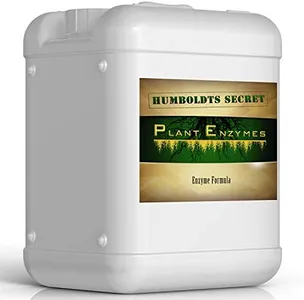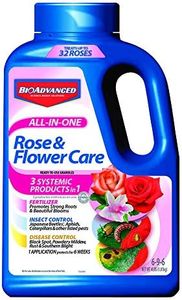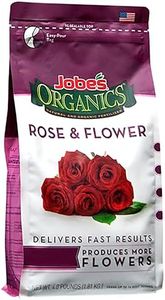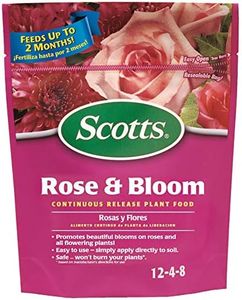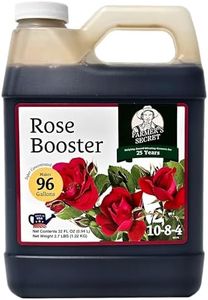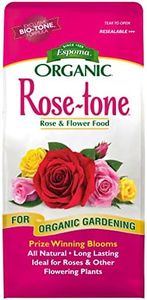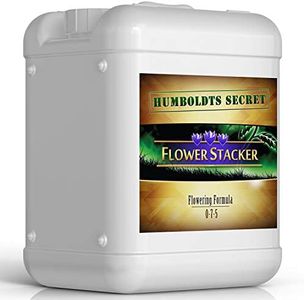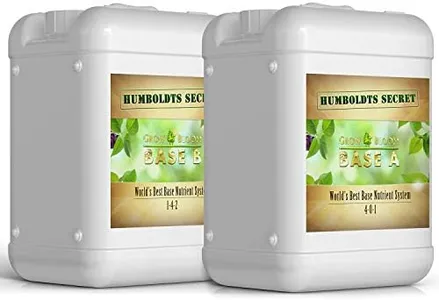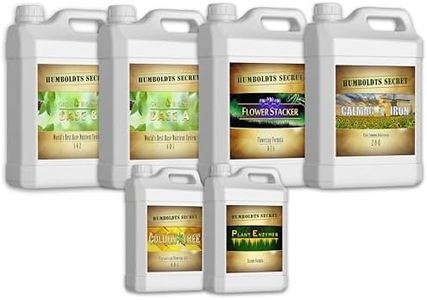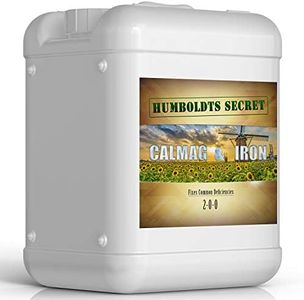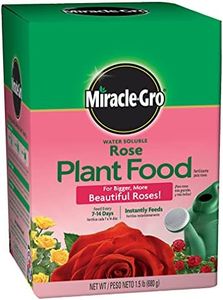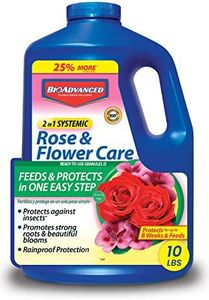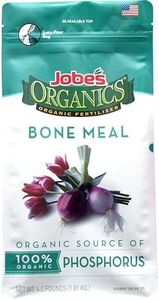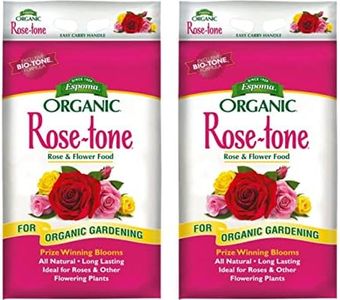10 Best Fertilizers For Roses 2025 in the United States
Our technology thoroughly searches through the online shopping world, reviewing hundreds of sites. We then process and analyze this information, updating in real-time to bring you the latest top-rated products. This way, you always get the best and most current options available.

Our Top Picks
Winner
BioAdvanced All-In-One Rose and Flower Care Fertilizer, Granules, 4 lb
Most important from
12842 reviews
BioAdvanced All-In-One Rose and Flower Care is a versatile granule fertilizer designed specifically for roses and flowers, offering a combination of plant food, insect killer, and disease control. One of its standout strengths is the multi-functional formula that not only promotes strong roots and beautiful blooms but also provides systemic protection against pests like Japanese Beetles and common rose diseases such as Black Spot and Powdery Mildew for up to 6 weeks. This makes it particularly advantageous for those looking for a comprehensive solution to rose care without needing multiple products.
A clear drawback is that this product is restricted in several states, including CT, CO, MD, MA, ME, NY, and VT, which limits its availability. Another aspect to consider is that it isn't specified as an organic fertilizer, meaning it may not be suitable for gardeners aiming for organic gardening. Additionally, the fertilizer contains synthetic active ingredients such as Imidacloprid and Tebuconazole, which may not appeal to those preferring all-natural products.
Its easy application as granules and the need for re-application only every 6 weeks can be a time-saver. This product is ideal for gardeners looking for an all-in-one solution that simplifies rose care, particularly those who do not mind using synthetic products.
Most important from
12842 reviews
Jobe's Organics Granular Rose Fertilizer, Organic Plant Fertilizer for Rose, Hydrangea, Hibiscus, Azalea, and Other Flowering Shrubs, 4 lbs Bag
Most important from
7351 reviews
Jobe's Organics Granular Rose Fertilizer is a solid choice for those looking to nourish their roses and other flowering shrubs like hydrangeas, hibiscus, and azaleas. One of its significant strengths is its organic formulation, which means it contains no synthetic chemicals and is OMRI listed for organic gardening by the USDA. This makes it a good option for environmentally conscious gardeners. The 3-4-3 NPK ratio provides a balanced mix of nutrients that supports vibrant blooms and healthy foliage.
Additionally, the granular form of the fertilizer minimizes mess and risk of wasteful runoff, which is a common concern with liquid fertilizers. It is easy to apply and requires reapplication every 6 weeks, making it relatively low-maintenance compared to some other fertilizers that need more frequent use. However, one potential drawback is that it may not provide the immediate nutrient boost that some synthetic fertilizers offer, as organic options typically release nutrients more slowly. It also requires accurate measurement to avoid over-fertilizing, which might be a bit challenging for beginners.
In summary, Jobe's Organics Granular Rose Fertilizer is a reliable, eco-friendly option for gardeners aiming to promote the growth and health of their flowering plants with minimal environmental impact.
